|
Today is the optional memorial of Sts. Cosmas and Damian, who were twin brothers born in the third century in Arabia. Both Cosmas and Damian became physicians, and in true Christian charity, refused to accept payment from their patients. During the persecutions under Roman Emperor Diocletian, the brothers’ renown in their Christian community made them easy targets. They were imprisoned and tortured by various means in an effort to force them to recant their faith, and after surviving most of these tortures while remaining true to Christ, Cosmas and Damian were finally beheaded.
What draws me to the story of Sts. Cosmas and Damian is not only their adherence to the faith while under excruciating torture, but also their unfailing generosity to those around them. They tended the sick in their community and did so without asking for or taking any monetary compensation. I like to think this was because they were often helping sick people who were also too poor to afford a physician in the first place. Generosity is a virtue that can easily be motivated by pride—we do good things for others, secretly hoping to get accolades or some kind of reward for being so self-giving. But I think generosity is really about giving to others —material, spiritual, or emotional—because you know the other will benefit, even if there is no compensation for you in return, or if (like Cosmas and Damian) you refuse to take any. Generosity is not only exemplified by a wealthy man donating money to charitable causes, nor only by going on mission trips to help those in poverty, nor is it demonstrated by showering poor children with gifts at Christmastide. We can cultivate the virtue of generosity in ourselves much closer to home and on a daily basis—just as St. Cosmas and St. Damian did. Generosity is lived out by a talented musician volunteering at his church to worship God in song, or by a mother who prepares and brings home-cooked meals to other families in her parish who have a new baby or have had a recent surgery. There is also spiritual and emotional generosity: being present and available to our siblings, children, parents, or friends as they struggle with transitions or discernment. When we engage in these acts of generosity, we serve Christ by serving others—even if it is not necessarily a sacrifice for us to do so. (Although I know for myself, the sacrifice that comes with being generous is striving to be selfless in my generosity and not to expect or desire reciprocation.) We are called to use anything that we have been given in order to glorify God. And what about those—presumably poor—people that Sts. Cosmas and Damian healed and treated? Who knows what kinds of generosity they were able to offer to their benefactors as a result of their encounter with the twin saints? Maybe they were generous in their prayer lives and interceded for the physician brothers. Maybe they were inspired by the generosity and faith of the two saints and went on to assist others in their community. Even if we cannot always be materially generous to each other, giving of ourselves in any capacity can cause a ripple effect of generosity throughout our communities. We can also learn to support and foster the generosity of others by thinking about how we respond when we are offered someone’s generosity, whether we asked for it or whether it was volunteered to us. Personally, I am working on asking for help or accepting generosity with humility. I know that I am less likely to help someone if they repeatedly protest my efforts or insist that I am doing too much, and therefore I try not to protest or downplay the good work that someone does for me. I try to remind myself that by serving each other, we are ultimately serving Christ. Questions for Reflection: Have you ever been the recipient of an act of generosity that changed your life? How so?
2 Comments
"Rather than seeing summer as the “down time” at a church, commit to approach the coming months with the intention of fostering experiences of active service, quiet prayer and contemplation, and stimulating intellectual work or professional training."
Having worked at a handful of churches, I have observed that the summer is the slowest time of year for parish life. Parishioner’s schedules are all over the place, especially if there are children or teenagers involved, with vacations, camps, etc. During the summer, parish programs tend to slow down (However, some parishes will run a Vacation Bible School, or similar camp-like program). But summer doesn’t have to be a long spiritual nap. In fact, the summer can be a very important time and opportunity for a church, especially for church staff. How you approach the summer can greatly shape the year ahead. Besides the celebration of the Mass, the summer provides a number of unique opportunities for spiritual growth in areas that aren’t always possible throughout the rest of the year. Here are a few opportunities for spiritual growth you might consider for your parish. Parish Mission Trips Many parishes host mission trips—whether local, national, or international. Consider prioritizing mission trips and extending the opportunities to different ages and areas. Some of my best summer memories are the trips I went on to rural Appalachia in high school. These trips instilled in me a call and love for ongoing service in my faith. Plan opportunities not only for parish staff, but also for families to serve together. Make it memorable and accessible. Let missions be an opportunity to get beyond the model of Christian ministry as something that only happens at your church. And remember to report back on the trip through photos, stories, or results to your parish. People love hearing about the activity in their parish community. It creates a sense of energy and momentum that can get carried into fall activities, especially in a youth ministry context. A service trip provides something concrete participants can point to and share with friends, family, or parishioners. I’ve also found that the more “on the fence” parishioners that are hesitant to get involved often take that first step after seeing the fruit of service. Most importantly, participants inevitably leave with a transformed, deeper experience of their faith and a lived experience of Jesus in his ministry to the broken places in need of healing. To find some long-term and short-term mission and service opportunities, click here. Retreats Work at the church never stops, but it does slow down. When is the last time your staff or ministry team spent time away, even just for a day or afternoon, from the office environment together and prayed? There are gorgeous retreat centers and shrines in every state that too often only get visited in the dead of winter. The Christian writer and philosopher Dallas Willard once said, “The greatest threat to devotion to Christ is service for Christ.” He was talking about our tendency to view prayer and contemplation as less fruitful compared to active ministry. Prayer is essential not only to any parish ministry, but to the Christian life overall. Invite your team to pray regularly or be renewed by attending a retreat. Priests are also required by Canon Law to take a retreat. Make sure your parish priest is getting the time off he needs to pray and reflect. If you or your staff is on retreat, pray for your parish priest throughout that time. Staff Development With all the conferences, classes, symposiums, etc., that happen on college campuses or churches throughout the country, summer is a great time to invest in the development of staff and volunteers. Look for opportunities to enhance your team’s intellectual and professional skills. Be flexible and open to new ideas where you and your staff can connect with other professionals or get inspired. If your parish has room in the budget, propose a conference you are passionate about or that will help your work. If you’re a liturgy or music director, take your ministers or musicians out to see a concert of sacred music or take a tour of a cathedral or museum. Rather than seeing summer as the “down time” at a church, commit to approach the coming months with the intention of fostering experiences of active service, quiet prayer and contemplation, and stimulating intellectual work or professional training. You might notice that rather than mustering the energy to get “back in gear” as summer draws to an end, you will feel renewed, enriched, and equipped for the “busy time” ahead. Moreover, you may draw closer to other others working at the parish and be more integrated as a staff, youth group, or ministry team. This can be a leaven to your ministry and parish for the rest of the year. Finally, make sure you have some fun while you’re at it; it is summer after all. *This post was originally published on the Ad Infinitum Blog on June 2, 2016. The back to school activities of September are a familiar routine for many families. Classes, assignments, extracurriculars and other events resume. Students begin their routines, and hopefully can rely on the enthusiastic support and encouragement of family and friends. Even in times of difficulty and trial, the reassurance and faith of others can help us find a way forward through uncertainty and strengthen us.
I see some parallels for this time in our Church. As the American Church goes through difficulty and trial, I have seen the importance of the involvement of the laity in each parish community. My observations of my parish community have been a great witness to the vitality of the church. Each week, I see families arrive to pray together and those who are involved in whatever ministries or needs the church advertises. Their worship of our Lord is not confined to Sunday Mass but is further expressed in the faithful service and loving charity of neighbors. The organizational structure of the parish furthermore allows the laity to find worthwhile opportunities of ministry. Numerous devotions are promulgated each month. Social calls to action are announced weekly. Calls to assist with the liturgical and musical ministries or volunteer with catechetical programs are ongoing. Pilgrimages are organized. Going beyond any mere routine of spirituality, the parishioners regularly exemplify a living witness to the Gospel: “Whatever you did for one of these least brothers of mine, you did for me.” Even in the storm of ever-changing current events, the Church stands firm upon her foundation, able to weather the most intense battering. Just look to your own parish: the Eucharist will still be confected, Mass will be celebrated, the sacraments will be administered, and the needs of the church will be met through the generosity and charity of its parishioners. Those leading or participating in these activities may change, but the significance of the laity’s participation in the parish never diminishes. Likewise, the constancy of the Gospel message never fails to ring truly or relevantly. Especially when we as a Church are shaken, let us cling to the divine promise of hope: Christ has died, Christ is risen, Christ will come again! The Gospel account of the storm at sea gives me comfort, for even the closest disciples of Jesus had doubts and feared for their lives upon encountering a sudden storm. They accused Jesus of not caring about the present danger. Unfazed, however, Jesus proceeded to calm the winds and the sea. The faith of the disciples had been tested—even when Jesus was physically with them in the boat! When we find ourselves adrift and at the mercy of the tempestuous world or lost in a great darkness, we may feel powerless and cry, “Where is the Lord?” In those moments, withdraw to a place of calm and remember the sure promise He made at the closing of Matthew’s Gospel account: “Do not be afraid… I am with you always, until the end of the age.” Spend some time re-reading the storm narrative I mentioned above, or other passages from Scripture, like Psalm 23, that bring hope and consolation. How many times in Scripture— and beyond— did Christ bring healing and comfort, asking only for faith in return? Let us ask for the gift of faith during times of darkness and find comfort in the fact that Jesus blessed his disciples upon seeing them in the Upper Room even though they had abandoned Him. “Peace be with you,” he said. Others may also have doubts during this time. I invite you to be there for them just as Christ remains faithful to you. The Church endures. She has undergone and will continue to undergo all sorts of trials. Yet she is never alone: Christ remains to guard and unite the faithful in Him. Our faith can be bolstered when we continue to engage in the simple daily exercise of spirituality and charity—especially in our parishes. The faithful of the parish are inspiring witnesses as they continue to perform acts of charity, worship together, and care for their neighbors. We as a Church are called to holiness; with God’s help, may we rise to the occasion. Dear future volunteer,
Each time I revisit the Ascension stories in the Gospels, I find numerous points that relate to mission and service. Throughout my own time on mission in Jamaica, I see similarities between these verses and my challenges and blessings in a daily life of service. I hope to offer encouragement to you, future volunteer, as you research and discern the many opportunities for service available to you. “He rebuked them for their unbelief and hardness of heart…” (Mark 16:14) My strongest prompt to mission came as I reflected on a painting of St. Francis gazing at the cross and being told to rebuild the church. The question written with the painting asked, “Am I willing to do God’s will?” For many years, I have read, heard, and tried to practice in small ways, the example of Jesus doing the “will of my Father,” and loving others as God loves me. Now I felt that God had put the nudge toward mission into my heart. Two years of overseas mission service seemed like a very big step into the unknown but I had the stories of Francis and many others as examples, and I felt that if I said “Yes,” God would enable me to shed my worries and, thus, soften my heart and make more room for his Grace! Future volunteer, God will do the same for you. Mission has taught me to expect the unexpected and to trust in God’s plan. Though I was open to other ministries, there was a pretty high expectation at my future mission site that I would be helping in schools, and that is exactly where I found myself. My first classroom was noisy, chaotic, cramped, and undersupplied, but I found that I had the most difficulty countering the common teaching approaches, which I perceived as overly physical and sometimes belligerent. During the first days and weeks, it was very easy for me to get caught up in the prevalent practice of shouting, derision, and physically putting someone into their chair or the corner. I didn’t like myself doing that. Continually, readings in the Franciscan prayer book kept telling me that Peace IS the path. One time, a student told me that he didn’t like me putting him into his seat. The next day, I got down to his eye level and apologized to him. He listened, we hugged, and I felt that I was on my way toward a better practice. Future volunteer, are you ready to be stretched and molded according to God’s will? “The eleven disciples went to Galilee, to the mountain to which Jesus had ordered them.” (Matthew 28:16) I always notice the number eleven here; it is a particular mention to the fact that someone is missing. Dear future volunteer, are you worried about leaving your loved ones to do service? There are times when I am missing someone familiar from my table. It is different people at different times and my heart misses them. The last phrase—”to which Jesus had ordered them”—strikes me as being particularly relevant to mission and service. What are Jesus’ orders? Feed the hungry, clothe the naked, go and make disciples of all nations. Mission is an opportunity to do just that. My heart believes that God does and will take care of me while on mission, and the Almighty and Universal God is also able to care for my loved ones even when they are on a different continent! “He led them out to Bethany...They did him homage and then returned to Jerusalem with great joy and they were continually in the temple praising God.” (Luke 24:50-53) Dear future volunteer, as you discern your service, there is great help to be found in being “continually in the temple praising God.” I couldn’t have made my decision for mission without some serious prayer and reflection. The question of “Is this really God’s will?” was a focus for my Lenten prayer before I began my time of service. Contemplative silence and guidance from trusted friends helped me to find peace in the answer to that prayer. This ending of Luke’s Gospel account shows the disciples returning to the Temple, and I have reflected on how this seems to be the strength they needed before departing to their ministries that are recounted in Acts. “Jesus came and stood in their midst and said, ‘Peace be with you.’” (John 20:19; 21:22) Ahhh, my prayers were voiced and answered; my heart found peace, and my decision for mission was made. In John’s Gospel, Jesus breathes the Holy Spirit upon the disciples. In the next chapter, I see another of my tendencies: my desire to get a quick summation of God’s plan. Peter wants to know about the future for the Beloved disciple…(nudge, nudge, wink, wink) and he is gently reminded by Jesus, “What concern is it of yours? You follow me.” The disciples encounter the resurrected Jesus in their everyday lives while fishing, walking, eating, and interacting with others. As my mission time unfolds, I also see Jesus in everyday life. I see him in the faith voiced in the locals that I meet and in new forms of singing and praise. I feel discouragement at the discrepancy of incomes and lack of faith just as Jesus felt while gazing at Jerusalem. I marvel to see God’s hand in creation as I walk by household gardens or explore the hills. And, like the disciples, I see Jesus working through me, giving me a stronger dependence on prayer as I realize that I will not be able to fix systemic problems, and a stronger sense of humility as I realize that I am an outsider here, but I truly have been sent by God. Jesus ascended and asked his disciples to go and teach all nations. Mission service makes us a viable part of that eternal and mystical plan. Jesus may have disappeared into the clouds, but we are able to make his presence real today. I really think that He was having a good chuckle as He ascended. He knew how much mission would change us! Dear future volunteer, are you ready to be changed? To learn more about service opportunities through Franciscan Mission Service, please click here. This reflection was originally published on the Catholic Volunteer Network Blog and was posted with permission. Janice Smullen is a recently returned missioner with Franciscan Mission Service. She most recently served in Kingston, Jamaica. A man named John was sent from God. He came for testimony, to testify to the light, so that all might believe through him. (John 1:6-8)
The first word that comes to mind upon reading this Gospel is humility. In response to questions from the priests and Levites, John explains that he baptizes not as Christ, Elijah, or the Prophet, but as “the voice of one crying out in the desert, ‘make straight the way of the Lord’.” John is so quick to point out this distinction, so quick to give credit where he feels credit is due. Reflecting back to my years of service as a Lasallian Volunteer and Good Shepherd Volunteer, I think I could have used a slice of this humble pie. How often did I consider myself “the light,” taking on the responsibility to serve, or save, the communities I entered? How often did I fail to see the parts of myself that needed saving, and that this saving work was never really mine to begin with? Thanks to time, perspective, and most of all, the grace of God and those I have encountered, I continue to be humbled - moved beyond my self-righteousness, and into a space of more authentic listening, learning, and loving. These moments, in all their discomfort and vulnerability, become my testimony; through the gift of growth, I can “testify to the light.” Focus on: COMMUNITY In this Gospel, the questions posed by John’s community invite him to name who he is and what he is about. Community often provides this challenge and gift - holding a mirror up to our past, present, and future and reflecting how all these complexities meld and meet the world. How do your communities help you own your truth? In community, how can we help each other “testify to the light” within? SERVICE SUGGESTION: Spend some time reflecting upon someone in your community who has helped you grow more into who you aspire to be. Write a note of appreciation, take them out to coffee, or find some unique way to affirm them and acknowledge the influence they have had. PRAYER: Our Power to Bless One Another by John O'Donohue (Excerpt from To Bless the Space Between Us) In the parched deserts of post-modernity a blessing can be like the discovery of a fresh well. It would be lovely if we could rediscover our power to bless one another. I believe each of us can bless. When a blessing is invoked, it changes the atmosphere. Some of the plenitude flows into our hearts from the invisible neighborhood of loving kindness. In the light and reverence of blessing, a person or situation becomes illuminated in a completely new way. In a dead wall a new window opens, in dense darkness a path starts to glimmer, and into a broken heart healing falls like morning dew. It is ironic that so often we continue to live like paupers though our inheritance of spirit is so vast. The quiet eternal that dwells in our souls is silent and subtle; in the activity of blessing it emerges to embrace and nurture us. Let us begin to learn how to bless one another. Whenever you give a blessing, a blessing returns to enfold you. *This post was published in the 2017 Advent Reflection Guide, a collaborative effort between the Catholic Volunteer Network and the Catholic Apostolate Center. Click here to view the full guide. Katie Delaney is a former Lasallian Volunteer and former Good Shepherd Volunteer. To learn more about faith-based service opportunities through the Catholic Volunteer Network, please click here.  When you are preparing to graduate, you have lots of options. This series from the Catholic Volunteer Network highlights people who chose service, and how the volunteer experience has made an impact on their lives. Name: Faith Yusko Volunteer Program: Bon Secours Volunteer Ministry Location: Baltimore, MD Hometown: West Islip, NY College: The University of Scranton, Class of 2016. International Studies Major How did you first learn about post-graduate service? I learned about post-graduate service through friends and role models of mine who have done post-graduate service. What other options were available to you, and why did you decide on your service program? I had considered jumping directly into the work force, but I definitely felt called to serve others through volunteering and I wanted to deepen my spiritual growth and development! Tell us about your service experience. I serve as a Child Care Aide in the Bon Secours Early Head Start Child Development Classroom. In my role I work as part of a team serving children ranging in age from two months to three years old and their families. This program helps support families and children so that they can develop a love of learning to carry with them throughout their lives. My fellow volunteer community members and I live and serve in West Baltimore, and have been learning from the pillars of our program centered around practicing God's justice, learning through service with others, developing community, growing spiritually, and living simply. In addition to allowing me to share my gifts, my service year has humbled me through the community I am learning from and that I am a part of. What benefits have you gained from this experience that you might not have received otherwise? I am learning different ways to apply Catholic Social Teaching and spiritual well-being practices into my everyday life. It has helped me to continue to grow spiritually after transitioning out of a Catholic undergraduate institution. What advice do you have for someone considering post-graduate service? Take the leap of "Faith" and you won't regret it! There are opportunities to learn and grow through service each day! Question for Reflection: How has an experience of service impacted your personal life or faith? *This post was originally published on the Catholic Volunteer Network Blog and was re-posted with permission. To learn more about post-grad service opportunities, check out Catholic Volunteer Network's RESPONSE directory, listing thousands of opportunities across the United States and abroad. To learn more about Catholic Social Teaching, please click here. The story of Christmas illustrates that there are no perfect families (or parishes) but we can hope to be a holy one. Part of becoming a holy family at Christmas means turning our attention to the spiritually lost among our family and friends. Here are a few things to keep in mind as we look to welcome disconnected Catholics to our churches and homes this season. Make Room for the Lost and Lonely For some people walking through the church doors, the Christmas season is a difficult and lonely time, a reminder of the families they don’t have. How do we show hospitality to those without a human family? If you are on a church staff or volunteer, slow down and consider the place you are making for those who feel lost and alone. You could, for example, make sure that the elderly and handicapped are able to find seating appropriate to their needs. Or, personally invite those who are alone to join in any parish fellowship that might be happening after Mass. Perhaps you could even invite a few of these people to bring up the gifts during Mass. A special role in the Mass during this important liturgical season can show those who feel unloved how honored we are to have them as members of our parish family. The goal is not to expose or make a scene around these types of parishioners, but to consider their needs and communicate that they are valued. Make Occasional Visitors Feel Loved, Not Judged For those coming to church at Christmas for the first time in a long time, many already carry a mild feeling of guilt that they don’t go to church regularly and expect to feel a little judged. Let us welcome these occasional visitors with open arms and encourage them to return by modeling the joy of the Lord through our actions. Joy is persuasive. If we let the love of Christ beam through us this Christmas season it might just be enough to help these occasional visitors desire more frequent encounters with our Lord in the Mass. Give a Gift to the Poor The Christmas gift-giving tradition began with St. Nicholas giving a gift to a poor family. While many church budgets are spread thin during this time of year, consider making room in your budget to help the church provide a gift to a local charity or foreign mission. Not only is this celebrating the authentic tradition of Christmas presents, it a sign of generosity that encourages church communities to remember their brothers and sisters whose basic material needs often go unmet. When we demonstrate charity as a parish family, we send a powerful message about what it means to come together on Sundays. Our faith is what is called a “corporate faith,” meaning, that we are all working toward salvation together. For those who have never been to Mass, or haven’t been in a long time, demonstrating parish-wide charity can show how much we as a community care about individual members of the body of Christ who are in need. For those who feel unwelcome or unworthy of joining the Church, communal Christian charity is a great way to demonstrate that we want them with us on Sundays and that we will work together to make sure their needs are provided for. Evangelize Through Beauty The Advent and Christmas seasons are rich with light and melody, in both a sacred and worldly sense. Advent is the liturgical season when we encounter beauty in the sparseness and fragility of the barren winter. The Christmas octave and season is full of color and sounds. Beauty has the effect of lessening our defenses and heightening our receptivity to the message of Jesus. What are the elements of beauty present in your church and home? How can you enhance them? Consider playing some soft sacred music in your home during the holidays or decorating your home with a nativity scene or poinsettia plant. It doesn’t take much, just something small to celebrate what a miraculous time Christmas is for all Christians. Jesus was born in an “irregular” family situation - not a perfect family by worldly standards, but a holy family in God’s plan for the world. Would we Christians today recognize and welcome this same Jesus? He is among us. He is knocking at the doors of our hearts, homes, and churches in the form of family, friends, and strangers in need of peace and hope. Let us welcome Jesus in! 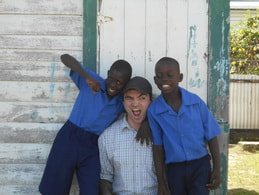 There is nothing easy about living in Guyana. Navigating the city streets of Georgetown is difficult, household chores need to be done more mindfully than in the United States, and even simple tasks like taking a shower or prepping to go to bed require more effort than I’m used to. Everything is just a little bit more difficult. Thankfully, as I’ve been adjusting to this new culture, country, and way of life over the past month and a half, I have had two saving graces that have kept everything in perspective. The first is my community of MVC volunteers who are experiencing the ups and downs of living in South America with me on a daily basis. The second is my job. No matter how difficult a single day may be, I’m always grateful to head to work. It serves as a constant reminder of why I’m in Guyana in the first place. I’ve been working for just over six weeks now at an orphanage for boys about fifteen minutes outside of the city of Georgetown in a small village called Plaisance. There are over fifty boys that live at the orphanage and about half of them attend the K-6 school on the grounds of the orphanage. Once the boys reach grade 7, they go to school at a secondary school in the next town over. I’ve been teaching the fifth grade class since my arrival and it has been…quite an experience. There are just a handful of boys in each grade. So, I spend my mornings and afternoons with three nine year olds and a thirteen year old who is repeating 5th grade for the second (or third?) time. They’re great kids, always keeping me on my toes. As the days have worn on, I’ve realized just how important the role I play in their lives is. Not to sound like a conceited fool, but the information that a fifth grade teacher dishes out to his/her students is essential stuff for life. For example, in the first few days of school, I’ve already taught the boys how to use quotations marks in Grammar class and how to do long division in Math class. When it comes to teaching vital lessons like these, I take the job very seriously. It’s fun to be able to teach something fundamental to little human beings, and it’s exhilarating to see them begin to understand it. On the flip side though, it’s slightly terrifying when you correct their homework and realize that they are still missing some of the basics. Alas, all part of the ups and downs of teaching. I’m learning really fast, I love being able to learn on the job. My classroom is a simple room with no walls between my room and the other classrooms in the school. All that separates each “classroom” from the next one over is a blackboard. I would have thought that it would take quite some time to get used to this way of teaching and learning, but I quickly grew used to staying focused on my classroom and the kids have been learning like this their whole lives, so they don’t even notice that there are five other lessons going on simultaneously with their lesson. The only time I have any issue with my four boys losing their focus is when the first graders are singing along with a cassette tape to an “Itsy Bitsy Spider” song that they all learned when they were in first grade. No matter how many times I try to coral them back into our lesson, they always feel the need to sing along with their six-year-old friends in the next classroom over. I have no materials to speak of to teach my students with, other than a few pieces of chalk and some outdated, tattered textbooks. Somehow though, it’s enough. Yes, it would be greatly beneficial to have a copier, pencils, crayons, notebooks or loose-leaf paper, but we make do with what we have. It takes a lot more creativity to teach a group of boys with nothing but chalk and my imagination than it would if I had a “Smart Board” and access to the Internet. I do find it humorous; however, that at the end of each day all four boys and I are always covered in chalk –our clothes, our faces, there’s no escaping it! At the end of each day I’m tired and I welcome the fact that Guyana’s close proximity to the equator means that the sun sets right around six o'clock each night. I think of it as the earth giving me permission to wind down and head to bed early. No matter the day, whether it’s Monday or Friday, I’m always exhausted by the time I’m arriving home. Thankfully, the tired feelings I experience are all just remnants of a good day’s work, in which I did a little teaching and, ironically, ended up learning so much more about life, love, and how the world works in the process. To learn more about Mercy Volunteer Corps, click here! Matthew Guiffre is a Mercy Volunteer Corps serving in Guyana South America. This post was originally written and posted on the Catholic Volunteer Network Blog. For more Catholic Volunteer Blog Posts please visit the CVN Blog Page. The Catholic Apostolate Center is proud to partner with the Catholic Volunteer Network by developing faith formation resources for volunteers and alumni, assisting in its efforts to provide and advocate for faith-based volunteerism and collaborate in many additional ways. 9/13/2016 Communicating Like Chrysostom: Growing Your Skills in Speaking for the New EvangelizationRead NowSeptember 13th is the feast day of St. John Chrysostom (c. 349-407), one of the most celebrated Fathers of the Early Church. Born in Antioch, John Chrysostom chose a simple life as desert monk, but was kidnapped and forcibly made the Archbishop of Constantinople, where he spent much of his life fighting against corruption— especially on behalf of the poor and widows. John earned the nickname Chrysostom—Greek for “golden-mouthed”—based on his reputation for eloquent speaking and skills in public preaching, which converted the hearts of many listeners. John Chrysostom exemplifies the value of good communication as an element of effective evangelization. Whether you’re a ham or have speech anxiety like most, at some point or another, you might be called upon to speak publicly—especially if you work or volunteer in the church. Whether you are preparing to deliver a parish talk, a personal witness, or other public presentation, no matter the size, spending some effort crafting your communication skills can be a great benefit to sharing your faith. Know your Who, What, and Why St. Paul, a man who described his call “to preach the gospel, and not with the wisdom of human eloquence,” (1 Cor 1:17), nevertheless frequently found himself speaking in front of crowds as part of his mission as an Apostle and disciple of Christ. Paul speaks very differently to mature Christians and the pagans of Athens (Acts 17:22-34). The audience (“who”) shapes his main points and examples (“what”) and the purpose for speaking to them (“why). Prepare by creating an outline that clearly and succinctly states your “who, what, and why.” Write it down and refer back to it throughout the composition stage. A Little Humiliation Goes a Long Way In seminary homiletics courses, preachers-in-training are frequently subjected to the sometimes humiliating exercise of having their practice homilies recorded. They then watch the playback to evaluate their delivery. In some form or another, that can help anybody. It’s probably going to hurt … but you actually get used to it over time and can learn a great deal throughout this process. Practice in front of somebody. (If you’re too embarrassed at first, use your dog, cat, or an inanimate object.) Exercises like these are designed to help public speakers become more self-aware, not self-conscious. People Watch Pay close attention to your favorite speakers, teachers, or preachers and try to articulate precisely what makes them engaging and unique—not just their content, but things like timing, rhythm, their order of argument, when and when not to use humor, etc. Pope St. John Paul II and Archbishop Fulton J. Sheen were masters at this. Be Yourself As you reflect on how you speak, name gifts and qualities that others identify about your particular style. Develop those. Remember, we are not all called to be rhetoricians and orators, or even great speakers, but faithful communicators of the Gospel. Not all, St. Paul says, are even called to be preachers or teachers (cf. Ephesians 4:11). To advance his kingdom, God has entrusted each of us with a message and a mission and nevertheless promises to “equip the holy ones for the work of ministry, for building up the body of Christ” (Eph 4:12). St. John Chrysostom, Pray for us! 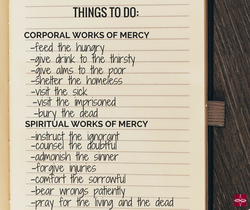 “The Corporal Works of Mercy are found in the teachings of Jesus and give us a model for how we should treat all others, as if they were Christ in disguise.” -United States Conference of Catholic Bishops (USCCB) The above description of the Corporal Works of Mercy reminds us that Christ lives within all of creation, unifying every living being. When we experience this sacred reality, we come to understand our actions as a means by which we may bring healing and wholeness to the Body of Christ. As our Bon Secours Ministry Volunteers practice the Corporal Works of Mercy through their service, they develop a deeper appreciation for the web of relationships which connects each of them in both an intimate and a personal way to all those they meet in their daily lives. In the reflections below, the BSVM volunteers share encounters which illustrate this growth. It is in the act of responding to their neighbor’s hunger and thirst for dignity through the Corporal Works of Mercy that our volunteers meet Christ in service. - Olivia Steback, Program Manager, Bon Secours Volunteer Ministry Feed the Hungry and Give Drink to the Thirsty By Gerard Ondrey When I bring a patient a container of apple juice or a pack of graham crackers, it often doesn’t register in my mind as a significant action. After all, most patients get three meals a day while in the hospital, something many of them do not receive outside the care of Bon Secours Baltimore Hospital. However, during my year of service I have come to realize the importance of these gestures lies not in their magnitude, but in the greater recognition of the human dignity these acts symbolize. The patients I encounter, many of whom struggle with poverty, homelessness, drug addiction, and other afflictions which contribute to their marginalization from mainstream society, are not used to being waited on or served. On the other hand, I am accustomed to going out to restaurants with family or friends, people taking my order, cooking my food, filling up my drink glass, and removing my dishes when I am done. When offering a patient a snack, I don’t quite have the selection of a five-star restaurant to choose from, but when I am asking a question as simple as, “Would you prefer apple, cranberry, or orange juice?” I feel I am embodying the ways in which I have been served. “Waiting” on patients, taking their “orders”, bringing them food, and clearing things away when they are done, feel like true acts of mercy. I am showing them that I find them important by honoring their requests and responding in a full and prompt manner. In my mind, this is what it means to live out the Corporal Works of Mercy of feeding the hungry and giving drink to the thirsty. In the above scenarios, the acts are not important because the people I am serving are in danger of starving to death in that moment, but because of the dynamic they represent; seeing and honoring Christ’s presence in all people elicits the desire to serve. Shelter the Homeless By Alex Yeo Through my ministry in the emergency room I have been able to work with many of the homeless men and women who reside in our community. These individuals come to the hospital seeking medical care and assistance with their social problems. My role, when I first meet them, is to ensure that their non-medical needs are addressed. One of the main organizations the hospital partners with is Healthcare for the Homeless, a nonprofit that provides medical care and social service assistance. With their aid, I have been able to provide patients the support and resources needed to help them transition out of homelessness. Visit the Sick By Mackenzie Buss Our volunteer community has been fortunate enough to avoid sickness so far (thank you Lord!) but, every day at the hospital, we work with those from the greater West Baltimore community who are ill. In my experience, it is often the sickest patients who are the most difficult to 'be present to'. All of our renal patients have a lot going on in their lives, from physical ailments, comorbidities, and actual disability to the myriad social problems that living in an impoverished neighborhood presents. In spite of the massive obstacles that all our patients face, there is still a huge range in energy levels and general overall health. The chipper, friendly, energetic patients are often the easiest to build relationships with. At first, I was daunted by the prospect of talking to the older, quieter, sicker renal patients. As I have grown and learned with Bon Secours Volunteer Ministry this year, I have come to understand that our service isn't necessarily about entertaining patients, solving little problems, or even listening to them. It's about being there for them with your whole soul. That is the mentality that empowered me to smile a bit and sit down next to one of our elderly, quiet, very sick nursing home patients. Sometimes, I'll hold her hand or say something that I am thinking of, but mostly I just sit there beside her. It's really a silent visit, a moment of being present to one of my sisters in Christ in the only way I know how - to just be together. I don't have much else to offer her, but something about those tiny moments, no matter how small and simple, just feels right. It's like a little slice of the Holy Spirit is there in right relationship with us as we sit and simply be together. Visit Prisoners By Elizabeth Modde It is not unusual to pass a man or woman walking down the hallway in handcuffs, flanked by two security guards. Bon Secours Hospital in Baltimore ministers to patients from the Department of Corrections. In fact, some patients admitted to St. Martin's Hall Inpatient Unit will be discharged to the police. Seeing these patients, shackled to their beds, I find myself trying to imagine what they must be feeling. Some are visibly anxious. With a small idea of the dehumanization that can be experienced in prison, I feel privileged to extend warmth and kindness to our prisoners at the hospital. Recognizing basic humanity and dignity, of both patients and the guards in their rooms, can be as simple as smiling and offering a cup of water. Bury the Dead By Alex Yeo In the ER, you rarely get the opportunity to develop a lasting relationship with a patient. There is a very specific process: triage, treat, and either discharge or admit to the inpatient floor. The focus is on efficiency not casual conversation. Regardless, many of the patients that come to the ER frequently are often too intoxicated or incapacitated to engage in conversation. This year, however, I had the privilege of meeting a patient, let us call him David, who had developed a lasting relationship with the ER staff. David, admittedly, was not the most pleasant patient to work with; a homeless alcoholic he had been cycling through the ER for over twenty years. I was always impressed that despite how frustrating it was for the staff to see him constantly return to the hospital, they were able to retain hope for his future. He was always given a place to rest out of the cold, a warm meal, and often times new clothes. The ER staff was his family. Their relationship may have begun begrudgingly but was now one of love and concern. When David passed away this winter, the mood in the ER was one of sadness and relief. Knowing that he had moved on to a better place brought solace to those who had worked with him. Being one of the last people to work with him, I was given the task of organizing his memorial service. Visiting the different departments of the hospital to raise publicity about the service, I was amazed at how many people in the hospital knew of him or had stories about caring for him. The hospital staff had given him many resources and much love, but he also gave back to us. During those difficult and frustrating moments of caring for him, he taught us how to love and to be patient; how to look past one’s impulsive judgments and tap into a deeper desire to care for one another as members of God’s creation. For those lessons we are eternally grateful and his presence will be greatly missed. Give Alms to the Poor By Nicole Odlum Through my ministry, I had the privilege to deliver Christmas gift bags to the many seniors I visit every month for blood pressure screenings. Around Christmastime each year, women from local Baltimore churches donate gift bags filled with simple personal hygiene products, laundry and dish detergent, and hand-knit scarves. For many of the residents, this may be the only Christmas present they receive. When I told them they could keep the entire bag of gifts, the look on their faces was humbling. The gratitude and appreciation they expressed was inspiring; this simple, unexpected gift bag brought them so much joy. One woman actually came back down from her apartment after leaving with her gift bag to thank us again for the things we gave her. That was an extremely powerful moment for me, because I realized how much these simple items, items most people consider a necessity, meant to the seniors. Pope Francis writes that, “Mercy is the force that reawakens us to new life and instills in us the courage to look to the future with hope.” Please continue to remember our volunteers in your prayers as they take Pope Francis’ words to heart and strive to courageously live lives of mercy and hope. To learn more about the Corporal and Spiritual Works of Mercy, click here. This post was originally written and posted on the Catholic Volunteer Network Blog. For more Catholic Volunteer Blog Posts please visit the CVN Blog Page. The Catholic Apostolate Center is proud to partner with the Catholic Volunteer Network by developing faith formation resources for volunteers and alumni, assisting in its efforts to provide and advocate for faith-based volunteerism and collaborate in many additional ways. Pope John Paul II, in his homily at the Mass he celebrated at the site of the Brzezinka (Auschwitz II) Concentration Camp in 1979; called St. Maximilian Kolbe “the patron of our difficult century.” Although the dawn of a new century has since come, St. Maximilian remains a strong symbol of Christian charity today. Seventy-four years ago tomorrow, he offered up an ultimate act of charity while knowing it would cost him his own life to save another.
While Maximilian Kolbe was a prisoner at Auschwitz, several men escaped from the camp. In an attempt to deter other prisoners from trying to escape, the officers chose ten men to starve to death. When one of the men chosen expressed his anguish because he had a wife and children, St. Maximilian willingly volunteered to take his place. After two weeks without food or water, St. Maximilian was the only one of the ten still alive. At that point, he was killed by a lethal injection. Although we cannot know for certain what happened while the ten men were held in the bunker, there are reports that St. Maximilian spent much of the two weeks leading the other nine in prayer to the Blessed Mother. Most of us will not be called to make the same sacrifice as St. Maximilian did for a stranger, but God calls each of us to works of charity and mercy. The Corporal and Spiritual Works of Mercy are simple ways to love God and to love our neighbor. This might mean sacrificing your Saturday afternoon to drive an elderly neighbor to her doctor’s appointment or to volunteer at a food pantry. Mercy might take the form of comforting a coworker or classmate (regardless of whether or not you are friends) when you notice them grieving. Mercy means not honking or cursing, but instead offering up a prayer when someone cuts you off in traffic. Mercy could mean not buying another sweater when you already have ten hanging in your closet and instead donating the money to a charity for the homeless. Every act of mercy requires some sacrifice--whether you are giving up time, money, or a bit of yourself--but there is no simpler way to tell God that you love Him. St. Maximilian Kolbe, pray for us! Jennifer Beckmann is an Administrative Secretary for the United States Conference of Catholic Bishops. This Lent, my 2nd grade class is in charge of encouraging our school to donate to CRS Rice Bowl, a program which helps raise money for those who are less fortunate in 6 places around the world. Our school’s efforts help students raise awareness of hunger and poverty. My class has been determined to give all they can in the past for service projects, but what sets this project apart? That is the question I have asked my students to ponder. One girl told me that her snack after school is Doritos, so for each day she doesn’t snack on this favorite treat, a quarter will be added to her jar for someone “hungrier than me.” Another boy told he scours his house and cars for loose change, and drops it in the Rice Bowl whenever he finds anything, even a penny. He asked me, “Every bit counts, right Ms. Kirby?” Indeed it does.
As Pope Francis reminded us at the beginning of the Lenten Season, our fast must be a fast from indifference toward others. The time has come for us to use these remaining 40 days to contemplate our actions toward others, striving for the utmost respect and care for them. Instead of searching for ways to improve our own lives, maybe it is time that we turned to the poor and vulnerable and improve theirs. Francis writes, “Indifference to our neighbor and to God also represents a real temptation for us Christians. Each year during Lent we need to hear once more the voice of the prophets who cry out and trouble our conscience.” It is not sacrifice to give of our excess or to simply change our diets during Lent, our Holy Father is calling us to fast from our indifference and turn to love. In this New Evangelization, there are tangible and realistic ways for each and every one of us to change hearts. This change must start within our own broken and sinful hearts and through God’s mercy and forgiveness. For each thing we do for our hearts, let’s do something for someone else. Here are some ways you could “fast for indifference”: 1. Do an Examination of Conscience and ask God to forgive your sins through the Sacrament of Reconciliation 2. Go and forgive those who have wronged you 3. Pray for those in your life 4. Intercede for others each day 5. Fast and acknowledge the poor 6. Volunteer in some way, perhaps by serving in a soup kitchen or shelter 7. Add prayer time to your day 8. Write in a journal 9. Attend Mass more frequently As you go about your day during this Lenten season, stop and think about what Jesus has done for your life and what you have done for others. Contemplate all that you have done and remember your responsibility to love others as Christ loved us all. If what we can give only fills a CRS Rice Bowl, or we give up indifference and care deeply for the poor, just know that “every bit counts.” Krissy Kirby is a teacher for the Archdiocese of Washington, D.C. To learn more on the CRS Rice Bowl please check out our Lenten Resources! Did you forget to wash your face this morning?
As someone who doesn’t like to draw attention to herself, stares and questions can make Ash Wednesday hard. It is the only day of the year (at least to my knowledge) where people can immediately identify you as Christian on sight. You don’t even have to do anything; it is right there, spelled out in black and white, on your forehead. For the distribution of ashes, the priest has a couple choices, but one option is to remind the people of their call to “turn away from sin and be faithful to the Gospel.” Jesus asks us to feed the hungry, clothe the naked, care for the sick, and to visit the imprisoned (Mt 25:34-46). How can your Lenten sacrifice live out the gospel message? When I was little, I would give up something that I loved for Jesus, like candy or, as in the case of one really difficult Lent, soda. Making any sacrifice, intending to show your love for God, is a great start, but I encourage you to take it one step further. If you decide to sacrifice your morning coffee, maybe money you would have spent at the coffee house could go to a local charity that provides winter coats for the homeless. If you’ve noticed that you being spending a little too much of your Saturday mornings watching television, this Lent might be a wonderful time to volunteer to stock shelves at your local food pantry or to serve meals at the soup kitchen. Maybe you could wake up an hour earlier to take a lonely, elderly neighbor to Mass. This Lent is the perfect time to be a living witness to the gospel, but that witness should continue even after Easter. That does not mean that you should give up coffee for the rest of your life or that you should never spend another Saturday morning watching television, but it does mean that our desire to make sacrifices out of love for Jesus shouldn’t end just because Lent does. This Ash Wednesday, I encourage you to think about not just how you can live the gospel during the next forty days, but how can you make it a part of your daily life. Ash Wednesday should not be the only day where people can immediately tell that you are Christian; your actions should make it crystal clear all throughout the year. There is no greater compliment than for people to be able to tell that you belong to Christ. Wear your ashes as a proud witness to your belief in Christ, answer any questions that come, and you just might inspire someone else to start his or her own faith journey. Jennifer Beckmann is an Administrative Secretary for the United States Conference of Catholic Bishops. For more information, be sure to check out the Catholic Apostolate Center's Lenten Resource Page! 9/25/2014 Discernment Story: How one volunteer came to hear her life calling through serviceRead NowI believe that my two years of service had a 100% direct impact on my discernment process and decision to enter the Daughters of Mary Help of Christians, more commonly known as the Salesian Sisters of St. John Bosco or just the Salesian Sisters. In fact, I would go so far as to say that God sent me to volunteer at this particular High School to reveal my vocation.
I wanted to do a year of volunteer service right out of high school, but did not have the opportunity to do so. I learned that I found great joy in serving others through my social outreach group in high school and had a strong desire to give more time, energy, and direct focus to volunteering. Come April of my senior year in college, I found myself without a plan for the following year and the idea of doing a year of service re-entered my mind. I visited theCatholic Volunteer Network website and found the online RESPONSE directory,which helped me to narrow down my search to the type of program I was interested in with the type of support that I needed. This is where I learned about the Cristo Rey Network of schools and truly the next chapter of my life began. The Cristo Rey Network is a high school model that offers low income families the opportunity to send their students to Catholic college prep high schools. How is this possible when most Catholic high schools are quite expensive, you might ask. The school partners with local corporate businesses, organizations, universities, hospitals, law firms etc where the students will work five days out of the month to offset their tuition cost. (Click here to learn more and see me in my classroom at minute 4:37.) It took a leap of faith to go to Don Bosco Cristo Rey High School (DBCR) in Washington, D.C. because I would be joining the Salesian Domestic Volunteers (now called Salesian Home Missioners) in their first year as a volunteer program and I would also be the only volunteer placed at DBCR. I was going to be a pioneer both in my volunteer program and placement in the school. DBCR was also only in its fourth year of existence and still responding to the challenges of being in the “start up” period. It would be two years of learning and growing for all of us. During my first year of service at Don Bosco Cristo Rey High School I worked in the Youth Ministry and Faith Formation Department while also teaching two sections of junior theology. In my second year I taught a full course load, five sections, split between freshmen and junior theology as well as assisting the youth ministry team. Within those classrooms and the small youth ministry office God called me to be a Salesian Sister. I learned a lot from working side by side with Fr. Abraham Feliciano, SDB (Salesians of Don Bosco). In him, I witnessed the everyday charism of the Salesians and joyful service to the young who are most in need. Fr. Abe loved those students with his whole heart and they knew it. They knew that they could rely on him to crack a joke and brighten their day or that they could come to him with serious problems and he would lead them to Jesus. I learned that the heart of the Salesian charism is a daily encounter with Christ in and through our students and hopefully reciprocated as we open ourselves to be an image of Christ for them. I spent countless afternoons in that youth ministry office, surrounded by young people, laughing so hard I thought I would burst! I also learned how to be with them in and through the struggles they encountered in their daily lives. (Click here to see the class of 2014 reading excepts from MLK Jr.’s “Letter from Birmingham Jail”. These are some of the many students who have overcome great challenges in their live and that I had the privilege to see Christ in everyday. ) While working with these students, I lived in community with volunteers from several different programs. We were a mixed bag of Franciscans, Salesians (that’s me!), Columbans, and volunteers from the Catholic Volunteer Network. Over the course of my two years there we ranged from a community as small as four to as large as nine. The Franciscan style of living in community is simplicity. On an economic level, we made do with all second hand furniture and shopped frugally for our needs. We usually did not buy Ziploc bags, for instance, because we could reuse Tupperware containers instead. As a part of my volunteer program, I did not have a car but I received a stipend each month for food and transportation. On the community level, simplicity meant that we relied on each other. Sometimes that took the form of practical matters, such as grocery shopping or mopping up a flood in the basement. Other times it took a more personal form as we relied on one another for support and friendship. Now that I am living in community with the Salesian Sisters, I look back on my time in community as a formative period. In learning how to live with different people of various personalities, I learned how to recognize the gifts that all members can bring to community and I was able to learn more about myself as well. As my two years of volunteering came to a close, I decided to stay and accepted a full time paid teaching position at DBCR. But I had an inclination, even then, that God was calling me to something more, something deeper. God had gifted me with two wonderful and difficult years at the service of a school and students truly in need. But His ultimate goal was not for me to stay at one school and with one group of students, He wanted to expand my horizons of service and the dimensions of my heart. I had the opportunity, while Fr. Abe was at DBCR, to attend daily Mass in our school chapel. This daily encounter with Christ in the Eucharist helped me to see Christ every day in the young people and opened my heart for the possibility of deeper relationship with Him. When the Salesian Sisters came for our vocations assembly I heard God’s voice speaking directly to me saying, “This is it!” I must be honest, my first reaction was irritation. “Oh very funny God! Here I am sitting through the same vocation talk presented to all five of my Theology classes. Aren’t you supposed to be speaking to the students right now?! Leave me alone!” But because our God is good and patient, He didn’t leave me alone. After three years in Washington, D.C., He called me to move to New Jersey where the formation house of the Salesian Sisters is located. It took some convincing on God’s part to show me that it was not just DBCR where He wanted me to serve, but anywhere the Salesians are and with all young people tho whom He might send to me. The Salesian Sisters dedicate their whole selves to God in the service of young people through education, parish catechism, youth centers, and anywhere young people may be found. St. John Bosco and St. Mary Mazzarello (our founders) shared the joy of Christ with every young person they met providing for them a home to feel welcome, a school to prepare them for life, a Church to evangelize, and a playground for them to make friends and have fun! For me, what started as just a year of service post college opened the doors of my heart for Christ to call me to my life’s vocation. I am now half way through my first year of formation and if I had to identify one overriding emotion, it would be deep a sense of peace. For more information on vocations, be sure to check out the Catholic Apostolate Center's Vocational Discernment Resources Kelly Schuster is a former Salesian Home Missioner and is currently an Aspirant with the Salesian Sisters This post was originally written and posted on the Catholic Volunteer Network Blog. For more Catholic Volunteer Blog Posts please visit the CVN Blog Page. The Catholic Apostolate Center is proud to partner with the Catholic Volunteer Network by developing faith formation resources for volunteers and alumni, assisting in its efforts to provide and advocate for faith-based volunteerism and collaborate in many additional ways. I try to make it to weekday mass before work. One day recently, father spoke of self-possession. “We must fully possess ourselves to fully give ourselves.” For me, these words could not ring more true.
My service year thus far has been one of immense growth, complete with intense growing pains (I went from 5’4” to nearly 5’9” in middle school and I remember complaining to my father how much my knees and legs were hurting). Until mass that day, I didn’t connect that I’ve been learning, trial-by-fire, the important relationship between self-possession and self-gift. With my job as case manager at a residential high school for emotionally disturbed teenage boys, I can’t afford to live a life of extremes. I know what it’s like to go to work with little sleep (awful), I know what it’s like to go to work unprepared (stressful) and I know what it’s like to go to work in a bad mood (disastrous). This year is a crash-course in how to be an adult – I cannot get away with the disorganization that characterized my life for three-and-a-half of my four years of college. Then, I lived only for myself. Now, I have a duty to my community and to my students. I live for nineteen wild teenage boys, and whether or not they see or appreciate it, I need to be at my best every minute that I am at work. Self-possession, or self-discipline, is an important skill I am trying to acquire for the sake of myself and those I serve. Social service is a field that demands one to continually give of oneself. You give your time and attention to students with issues like, “I have a toothache and my mom’s insurance card isn’t working, can you make me an appointment?” to “I feel abandoned by my family and don’t want to be in this place” to irate calls from parents, to surprise visits from state agencies.. One is constantly giving time and attention to all types of people and situations. Self-discipline may have too much of an ascetic, medieval tone to it, but it is so very important for good work. I need to sleep. I need to smile and listen to others even when I don’t feel like smiling or listening. I need to do my paperwork in a timely manner. I need to read my work email instead of browsing the internet. I need to make sure I have time with friends so that I can be in a place of peace and happiness for my work. I need to model how to live a good life, so that when I give my students a hard time for playing 18 hours of video games over the weekend or for not communicating respectfully with their parents, I am not picking out their splinter in their eyes while the plank is in my own. We learn more from what people do than what they say. Our world is inundated with words, most of them pretty useless. Actions are more powerful, and someone who does what he or she preaches is the kind of person I might stop and listen to. Our faith has the most beautiful image of love: Jesus on the cross. That example of pure love, of most unselfish self-gift, moves me to action more profoundly than any words of a thoughtful hallmark card, any viewing of the Notebook, any poem of Elizabeth Barrett Browning (and I enjoy EBB!). Love in our faith is a dying to oneself for the sake of others and God. If I fully possess myself, I have grown in my ability to die constantly to myself. And if I have created that habit within, then I can more freely love and give to those around me. By Jen Coe, Lasallian Volunteer 12-13 Place of Service: Martin De Porres, Queens, NY This post was originally written and posted on the Catholic Volunteer Network Blog. For more Catholic Volunteer Blog Posts please visit the CVN Blog Page. The Catholic Apostolate Center is proud to partner with the Catholic Volunteer Network by developing faith formation resources for volunteers and alumni, assisting in its efforts to provide and advocate for faith-based volunteerism and collaborate in many additional ways. |
Details
Archives
July 2024
Categories
All
|
About |
Media |
© COPYRIGHT 2024 | ALL RIGHTS RESERVED

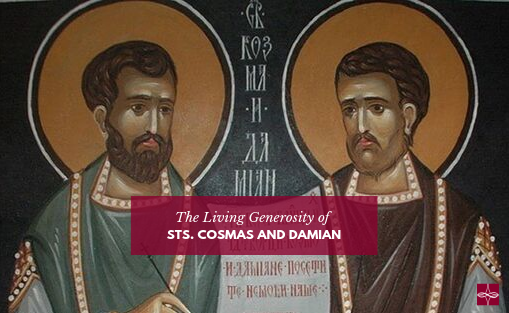





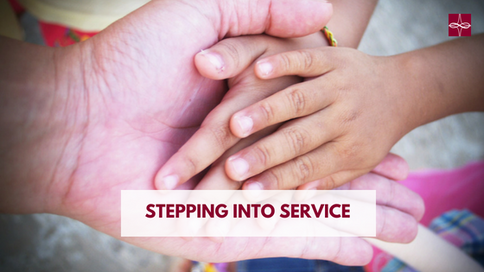
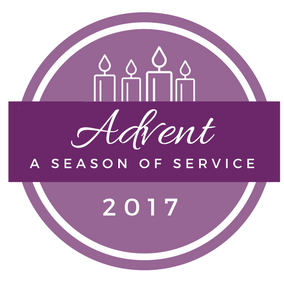
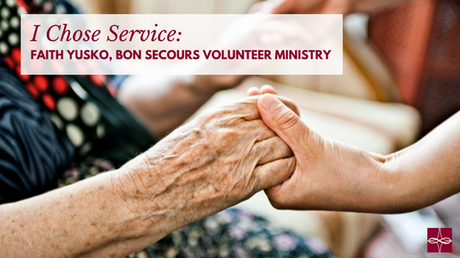
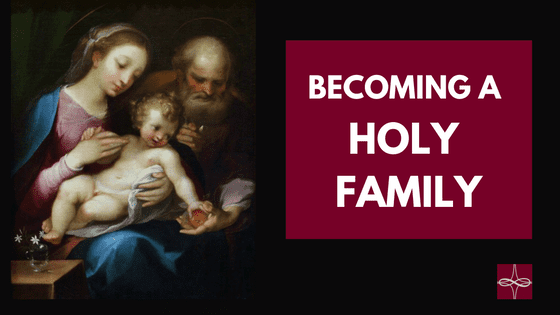


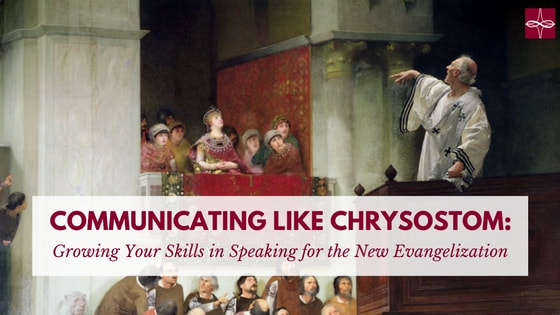



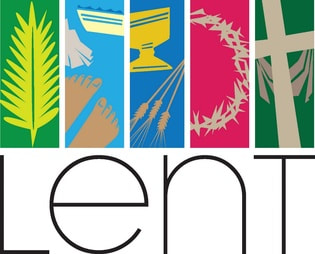

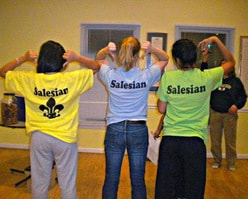

 RSS Feed
RSS Feed